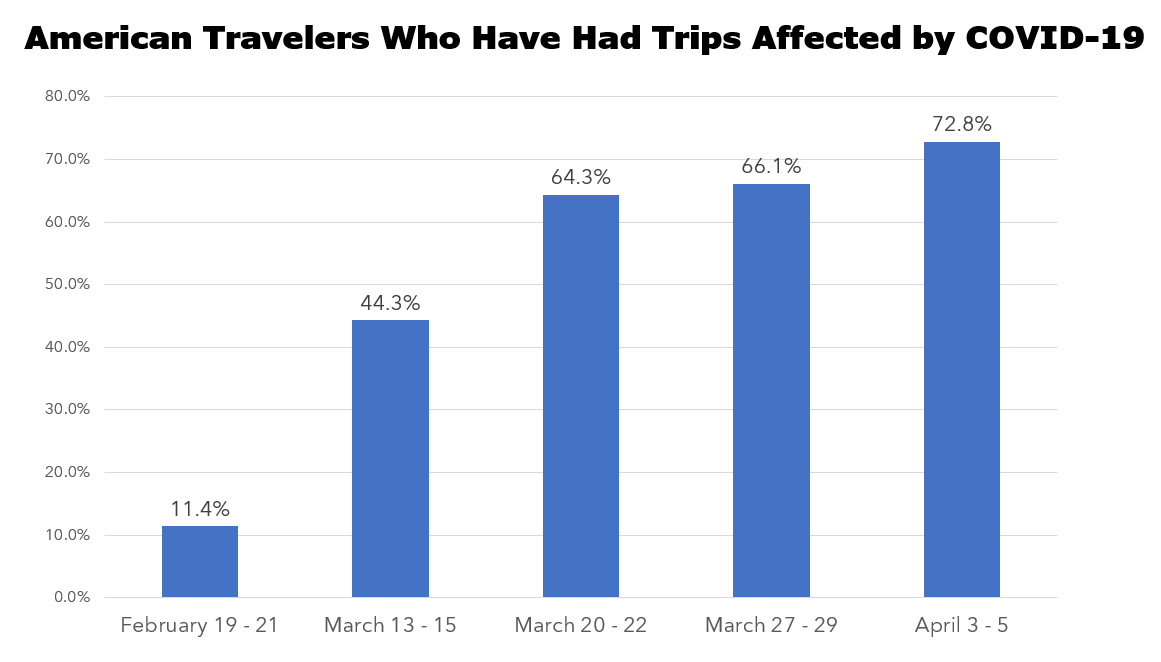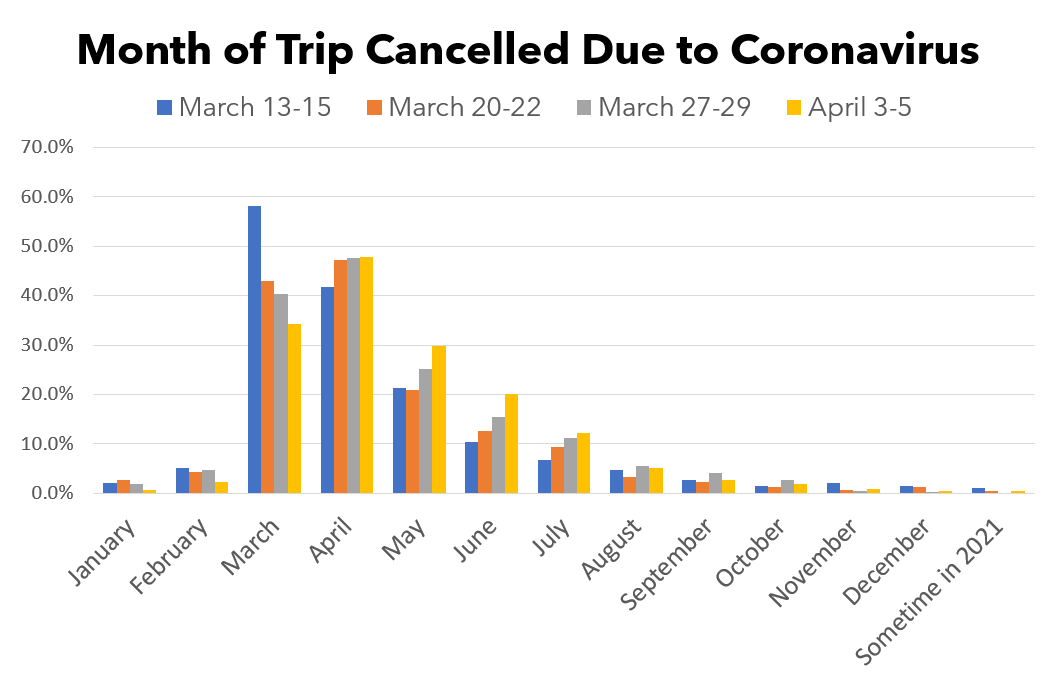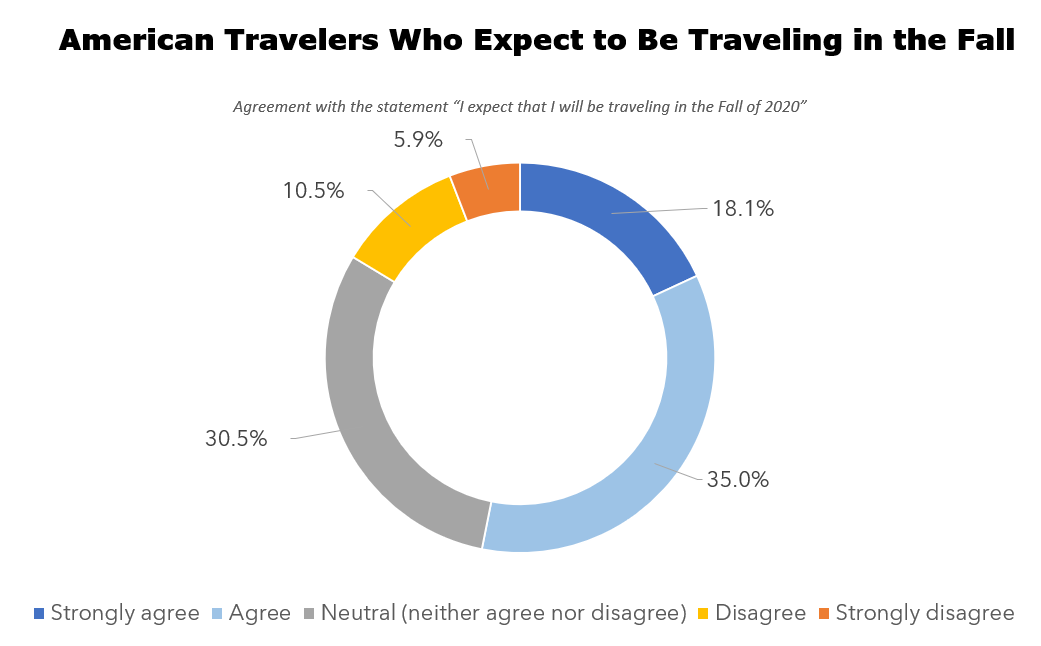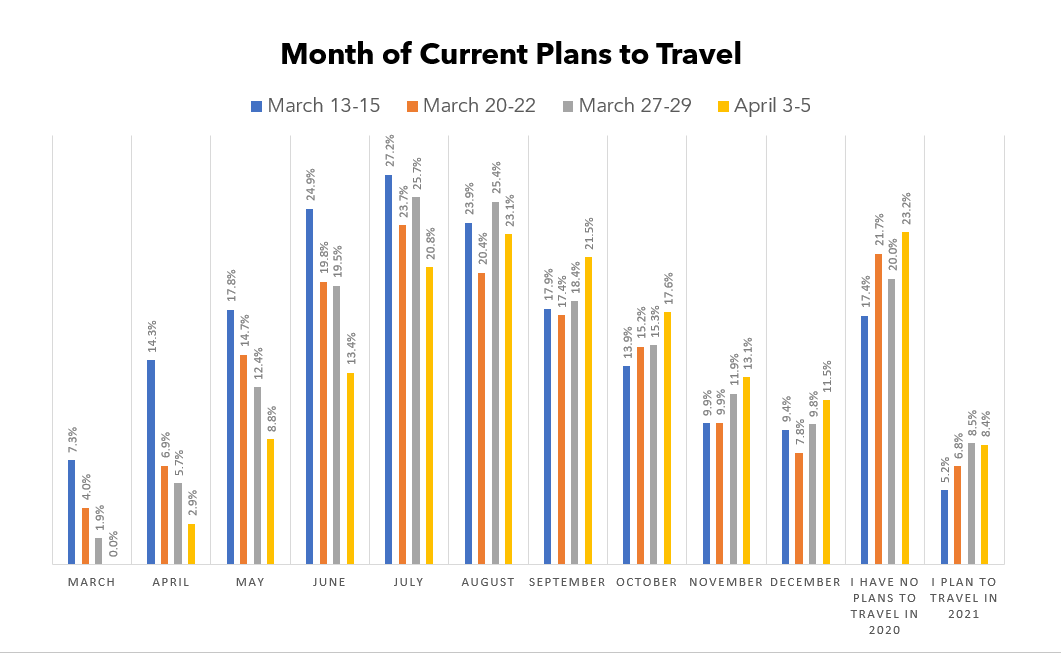Update on Coronavirus’ Impact on American Travel–Week of April 6th
American Travelers Start Looking to Fall as Near-Term Concerns Grow

IMPORTANT: These data and findings are brought to you from our independent research, which is not sponsored, conducted or influenced by any advertising or marketing agency.
Key Findings to Know this Week
- Concern about personally contracting the virus has been steadily increasing among travelers in the Midwest and Northeast, with those in the Northeast feeling the most concern.
- After a small dip last week, concern about the virus’ impact on travelers’ personal finances is back up (7.0 on a 10-point scale).
- More travel was affected in the last week: now 72.8% say they have had travel affected by the coronavirus situation. 65.3% cancelled a trip; the highest rate in the last four weeks. There is an uptick in cancellations reported in May and June.
- The percent who feel the coronavirus situation will get worse in the U.S. next month has grown to 70.3% (from 66.5% a week ago). Those confident that coronavirus will be resolved by the summer travel season plummeted to 31.0%.
- Nevertheless, 53.1% of American travelers say they expect they will be traveling in the Fall. The percent who say they have trip plans in September and later in 2020 have ticked up.
- Even more travelers say they miss traveling this week–69.1% can’t wait to travel again, up from 63.0%.
- After the pandemic, half of American travelers say they will avoid crowded destinations (49.8%).
As the United States has become an epicenter of the COVID-19 pandemic, concern among American travelers about personally contracting the virus is high, with steady week-over-week increases in the Midwest and Northeast (where concern is the highest in the country) regions. Interestingly, Gen X has been given accolades as the generation who acted swiftly in taking coronavirus seriously and implored others to; indeed, Gen X travelers continue to express the most concern about their friends and family contracting the virus.
After a small dip last week, concerns about the virus’ impact on personal finances is back up—7.0 on a 10-point scale; the week prior it was 6.8. Travelers in the Western U.S. demonstrate the most concern about what coronavirus may do to their personal financial situation.
This week, Florida has jumped to the third most named place travelers associate with coronavirus issues, after New York—which is far and away the destination most commonly associated with coronavirus—and California—which has seen declines this week as a place associated with coronavirus issues.
Over the last week, even more travel was affected by the COVID-19 outbreak—now 72.8% of travelers say they have had trips affected by the coronavirus situation, up from 66.1%.

Nearly two-thirds (65.3%) report having cancelled a trip; the highest rate in the last four weeks (Note: Gen X travelers were the likeliest to report trip cancellations due to coronavirus this week). An uptick in cancellations was reported for the months of May and June, suggesting that travelers are less confident about being able to travel until July or later. Americans are likeliest to report that it is their vacation-type trips being impacted (40.3%), but even trips to visit friends and relatives have steadily risen in cancellations or postponements (26.0%).

The percent of American travelers who feel the coronavirus situation will get worse in the U.S. next month has grown to 70.3% (up from 66.5% a week ago). Those confident that coronavirus will be resolved by the summer travel season plummeted to 31.0% (Back on March 15th, 52.5% of American travelers felt the situation would be resolved by summer). Millennial travelers remain the most optimistic.
Nevertheless, 53.1% of American travelers say they expect they will be traveling in the Fall. The percent who say they have trip plans in September and later in 2020 have ticked up, as well.


As shelter in place and social distancing measures continue on, even more travelers are saying they miss traveling. This week, 69.1% said they “can’t wait to get out and travel again” up from 63.0% last week. However, half of American travelers feel that they will avoid crowded destinations in the six-month period after the pandemic ends.
In addition, more travelers are showing their support for their own communities. This week, 60.6% of American travelers said they have undertaken specific efforts to support local businesses where they live.
